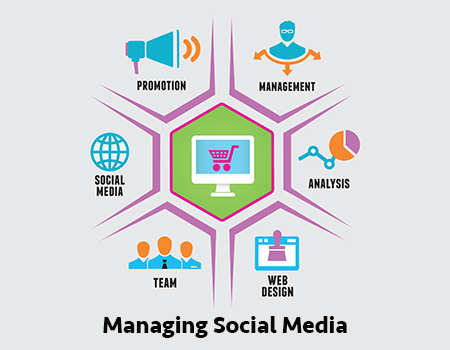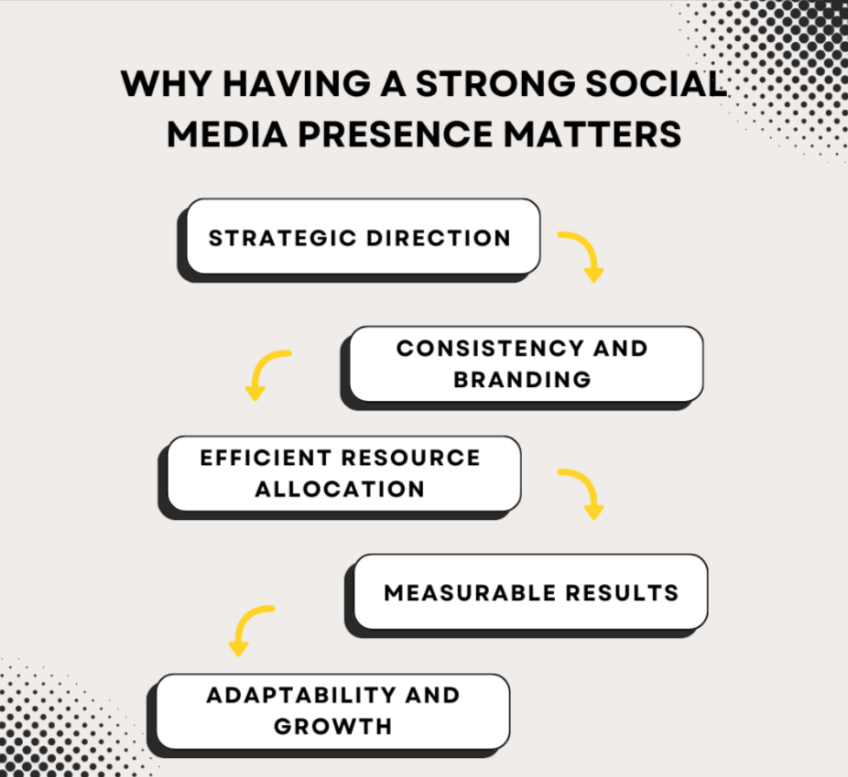
Nowadays, being active on social media is an important part of running a business. Let’s face it, though; it’s not as simple as it seems. Many business owners find it difficult to decide what to post, when to post it, and how to boost social engagement. Cherry on top, social media platforms are always changing their algorithms, and keeping up can feel like a full-time job.
If you’ve ever felt overwhelmed trying to manage your business’s social media accounts, you’re not alone. This is where social media management comes in. It’s more than just posting pictures or replying to comments—it’s about having a structured approach to growing your online presence.
Many businesses choose to work with a digital marketing agency that provides social media services in order to get the best results. But whether you manage it yourself or hire an expert, understanding how social media management works is the first step.
What is Social Media Management?
Social media management is the process of handling a business’s online presence across platforms like Facebook, Instagram, LinkedIn, Twitter, and TikTok. It includes everything from creating content and scheduling posts to engaging with followers and tracking performance.
A well-managed social media strategy helps businesses stay relevant, attract more customers, and build brand loyalty. Without a plan, businesses risk being invisible in the crowded digital space.

Why Social Media Management Matters for Your Business
Imagine you own a small café. You post a great picture of your coffee on Instagram. But what if no one sees it? What if the algorithm pushes it down because you posted at the wrong time? What if your competitors are running paid ads and getting more customers?
Social media management for businesses is crucial for this reason. It helps businesses increase visibility, connect with the right audience, and convert followers into clients. This is how it has an impact:
- Saves Time: It takes a lot of time to manage several platforms. A well-planned social media strategy keeps things organised.
- Improves Brand Awareness: Posting regularly on social media channels will boost visibility. This in turn will help your audience remember your brand.
- Increases Engagement: You gain your audience’s trust by responding to their messages and comments.
- Boosts Sales: Proper content can increase traffic to your website or store.
- Monitors Performance: Information enables you to determine what is and is not working.
Key Elements of Social Media Management
1. Content Creation & Strategy
Posting random content won’t bring results. A strong content strategy includes:
- High-quality photos, videos, and graphics.
- Captions that encourage engagement.
- A mix of educational, promotional, and entertaining posts.
A planned content calendar helps organize, and schedule posts across platforms. The consistency helps you to align your social media marketing efforts with your business goals.
2. Scheduling & Automation
Posting at the right time is important for targeting a larger audience. Social media management tools help schedule posts in advance, saving time and ensuring consistency.
Some of the best social media management tools, like Hootsuite and Buffer, allow businesses to manage multiple accounts from one place. This makes it easier to stay active without spending hours online every day.
As per socialpilot, the best time to post on social media in 2025 is:
- Mornings: 7 am to 9 am
- Afternoons: 1 pm to 3 pm
- Evenings: 7 pm to 9 pm
3. Engagement & Community Management
Social media is a two-way conversation. Successful brands don’t just post content—they interact with their audience by:
- Replying to comments and messages.
- Engaging in trending conversations.
- Encouraging user-generated content.
Building strong relationships with followers increases trust and brand loyalty.
4. Running Paid Ads
With organic reach decreasing, businesses often use social media ads to target the right audience. Paid promotions help businesses:
- Increase visibility.
- Drive traffic to their website.
- Generate leads and sales.
A good social media manager knows how to optimize ads for the best return on investment.
5. Analytics & Performance Tracking
The best method for improving social media strategy is to analyse performance. Some of the important metrics to examine are:
- Post reach and interaction.
- Follower growth.
- Conversion and click-through rates.
Businesses could change their strategy in order to improve results over time by keeping track of information.
6. Competitor Analysis
Understanding what your competitors are doing on social media can help you refine your own strategy. Competitor analysis includes:
- Checking their content strategy.
- Observing their engagement levels.
- Identifying what works for them and how you can do it better.
7. Social Listening & Reputation Management
Social media isn’t just about posting—it’s also about listening. Social listening helps businesses track conversations related to their brand, industry trends, and customer concerns. This allows businesses to:
- Respond to feedback and reviews.
- Address negative comments before they become a crisis.
- Adjust their strategy based on customer needs.
8. Influencer Collaboration
Many businesses work with influencers to expand their reach. A social media manager can:
- Find relevant influencers in your industry.
- Negotiate collaborations.
- Track the success of influencer campaigns.
When done right, influencer partnerships can bring in a new audience and build trust with potential customers.
Best Tools for Social Media Management
If you’re managing social media yourself, using the right tools can save you time and effort. Some of the best social media management tools include:
- Hootsuite – Schedule and manage all posts in one place.
- Canva – Create high-quality graphics and visuals.
- Meta Business Suite – Manage Facebook and Instagram in one dashboard.
- Buffer – Automate posting and track performance.
- Sprout Social – Advanced analytics and reporting.
These tools make social media management easier and more efficient.
Should You Manage Social Media Yourself or Hire a Professional?
If you’re running a small business, you might try managing social media yourself. But as your business grows, it becomes harder to do everything alone.
Signs you may need professional help include:
- You don’t have time to create and schedule content.
- Your posts aren’t getting engagement.
- You want to run ads but don’t know how to do it.
- You’re struggling to grow your audience.
There are many tips to grow social media for business, but if you’re short on time or expertise, hiring a social media expert can take your business to the next level.

Final Thoughts: Is Social Media Management Worth It?
Absolutely! In today’s digital world, social media is one of the most powerful tools for businesses. Whether you’re a small startup or an established brand, social media management helps you stay visible, engage with your audience, and grow your business.
By creating quality content, engaging with followers, running ads, and analysing performance, businesses can turn social media into a revenue-generating platform.
If managing everything on your own feels overwhelming, working with professionals can make a huge difference. The best social media agency in Dubai can help businesses navigate the complexities of social media and create a winning strategy.
Ready to take your social media presence to the next level? Start by building a strategy, staying consistent, and engaging with your audience—your business will thank you for it!